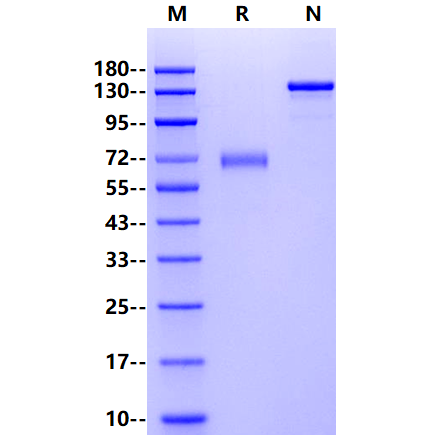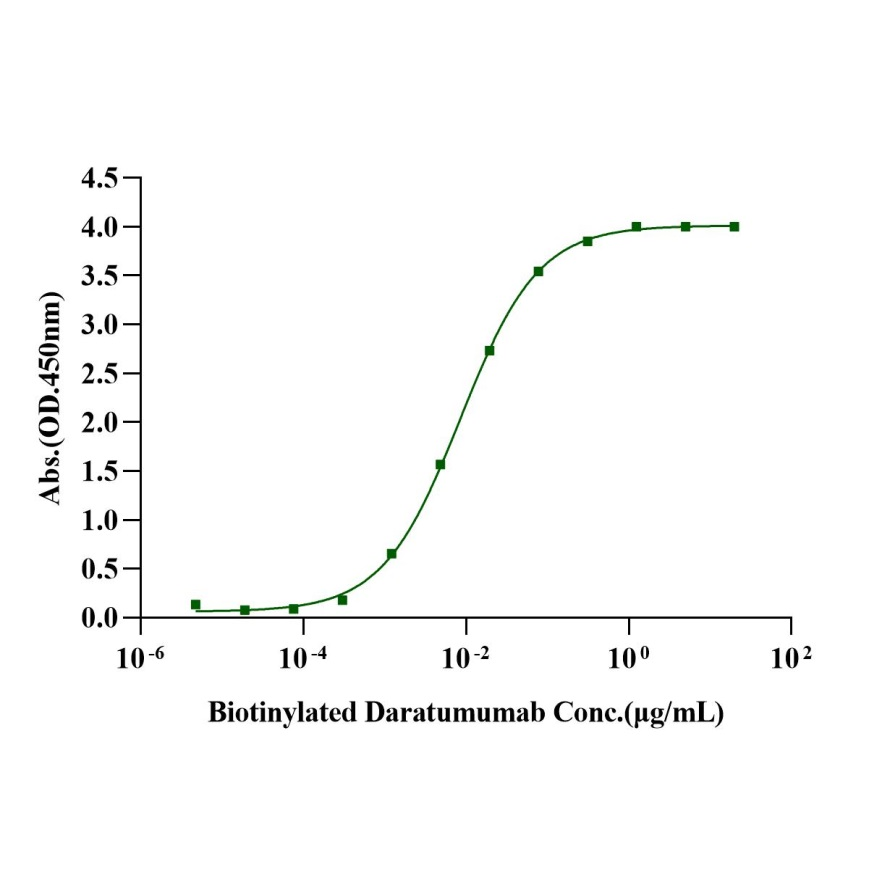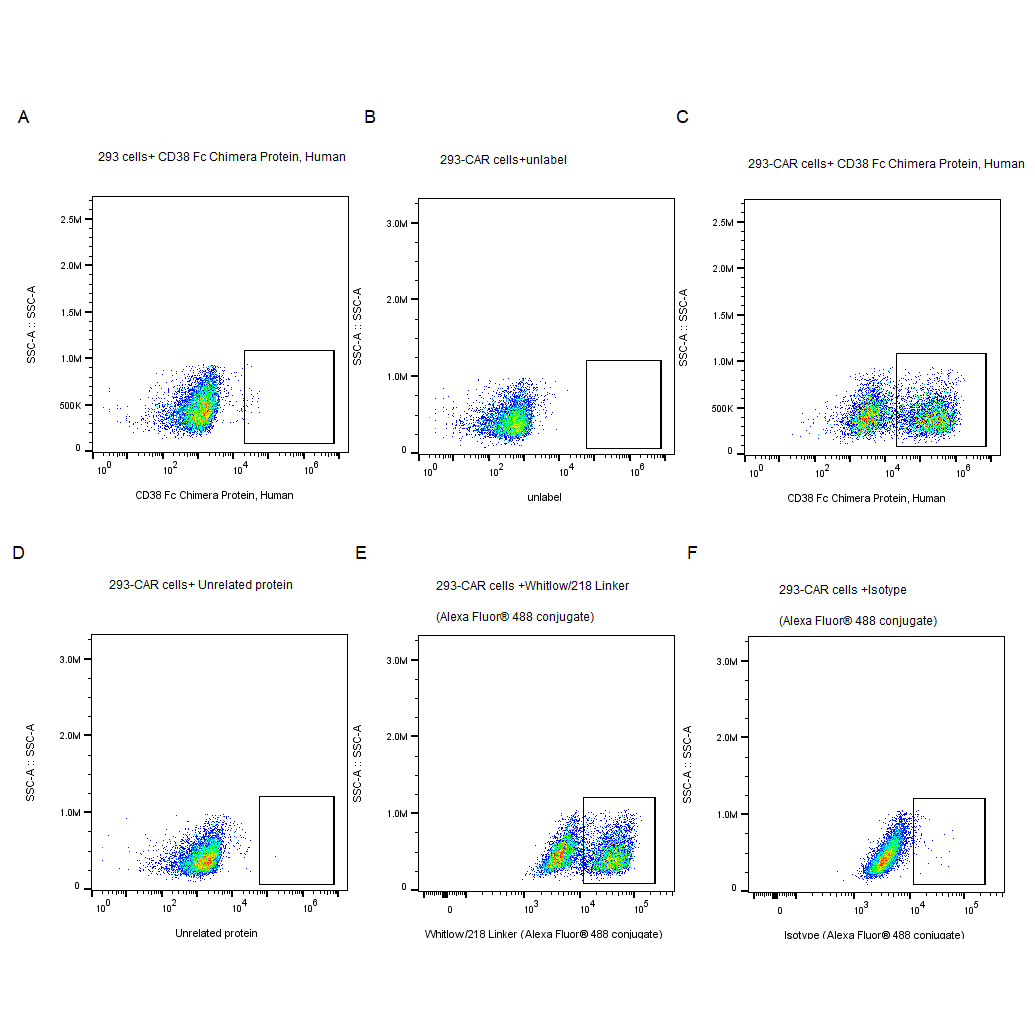2e5 of transient transfected anti-CD38 ScFv CAR-293 cells were stained with 0.1ug CD38 Fc Chimera Protein, Human, (Cat. No. UA010182) and unlabel respectively and unrelated protein (Fig. C and B and D), and non-transfected 293 cells were used as a control (Fig. A). Alexa Fluor® 647 signal was used to evaluate the binding activity.
2e5 of transient transfected anti-CD38 ScFv CAR-293 cells were stained with isotype and Whitlow/218 Linker-Alexa Fluor® 488 (Fig. F and E). Alexa Fluor® 488 signal was used to evaluate the binding activity.
Product Details
Product Details
Product Specification
| Species | Human |
| Synonyms | ADPRC1; cADPR1; ADPRC 1 |
| Accession | P28907-1 |
| Amino Acid Sequence |
Val43-Ile300, with C-terminal Human IgG Fc VPRWRQQWSGPGTTKRFPETVLARCVKYTEIHPEMRHVDCQSVWDAFKGAFISKHPCNITEEDYQPLMKLGTQTVPCNKILLWSRIKDLAHQFTQVQRDMFTLEDTLLGYLADDLTWCGEFNTSKINYQSCPDWRKDCSNNPVSVFWKTVSRRFAEAACDVVHVMLNGSRSKIFDKNSTFGSVEVHNLQPEKVQTLEAWVIHGGREDSRDLCQDPTIKELESIISKRNIQFSCKNIYRPDKFLQCVKNPEDSSCTSEIIEGRMDPKSSDKTHTCPPCPAPELLGGPSVFLFPPKPKDTLMISRTPEVTCVVVDVSHEDPEVKFNWYVDGVEVHNAKTKPREEQYNSTYRVVSVLTVLHQDWLNGKEYKCKVSNKALPAPIEKTISKAKGQPREPQVYTLPPSRDELTKNQVSLTCLVKGFYPSDIAVEWESNGQPENNYKTTPPVLDSDGSFFLYSKLTVDKSRWQQGNVFSCSVMHEALHNHYTQKSLSLSPGK |
| Expression System | HEK293 |
| Molecular Weight | 68-72kDa (Reducing) |
| Purity | >90% by SDS-PAGE |
| Endotoxin | <0.1EU/μg |
| Conjugation | Unconjugated |
| Tag | Human Fc Tag |
| Physical Appearance | Lyophilized Powder |
| Storage Buffer | PBS, pH7.4 |
| Reconstitution | Reconstitute at 0.1-1 mg/ml according to the size in ultrapure water after rapid centrifugation. |
| Stability & Storage |
· 12 months from date of receipt, lyophilized powder stored at -20 to -80℃. · 3 months, -20 to -80℃ under sterile conditions after reconstitution. · 1 week, 2 to 8℃ under sterile conditions after reconstitution. · Please avoid repeated freeze-thaw cycles. |
Background
Cluster of differentiation 38 (CD38) is a multifunctional extracellular enzyme on the cell surface with NADase and cyclase activities. As a NADase, CD38 produces adenosine through the adenosine energy pathway to cause immunosuppression. As a cell surface receptor, CD38 is necessary for immune cell activation and proliferation. Previous studies suggested that CD38 plays an important role in the regulation of macrophage function. Therefore, as a new marker of macrophages, the effect of CD38 on macrophage proliferation, polarization and function, its possible mechanism; CD38 is not only expressed in human immune cells, such as lymphocytes and plasma cells, but also is abnormally expressed in a variety of tumor cells, which is closely related to the occurrence and development of tumors. The role of CD38 in immune cells ranges from modulating cell differentiation to effector functions during inflammation, where CD38 may regulate cell recruitment, cytokine release, and NAD availability. In line with a role in inflammation, CD38 appears to also play a critical role in inflammatory processes during autoimmunity, although whether CD38 has pathogenic or regulatory effects varies depending on the disease, immune cell, or animal model analyzed.
Picture
Picture
FC
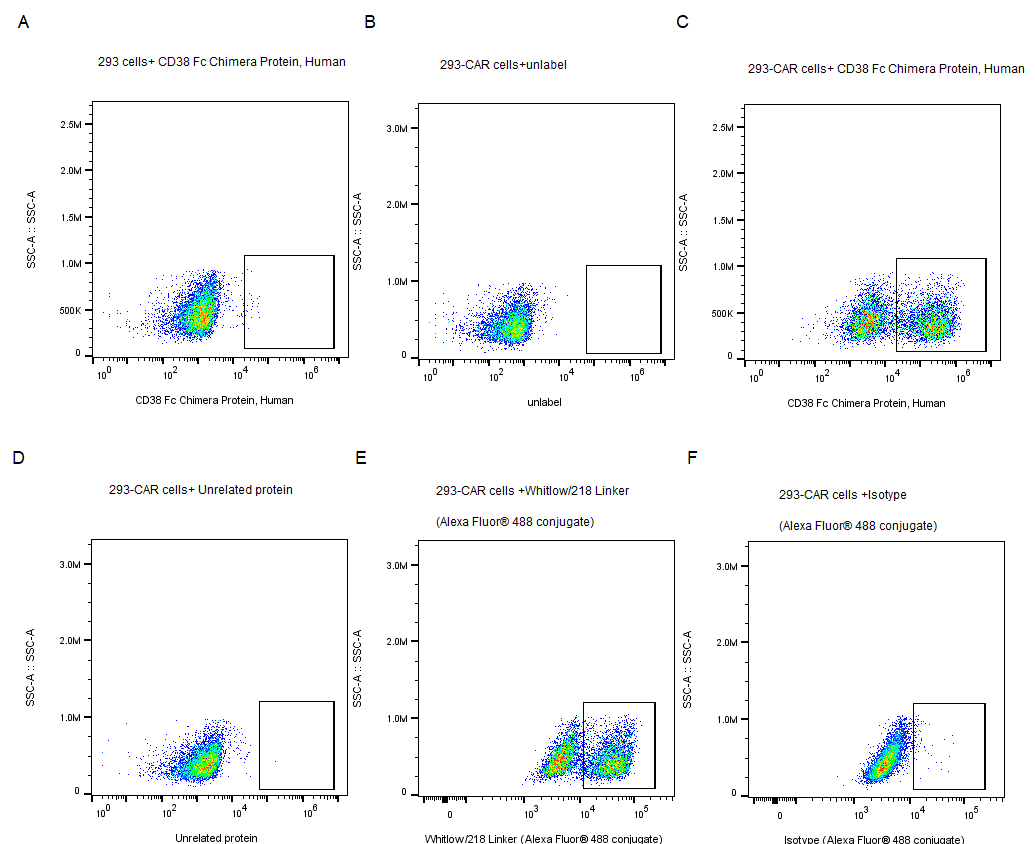
SDS-PAGE
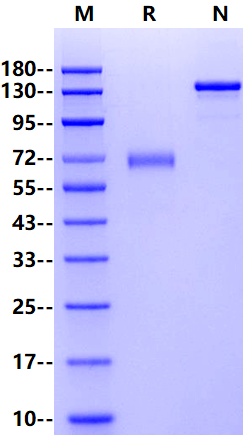
ELISA
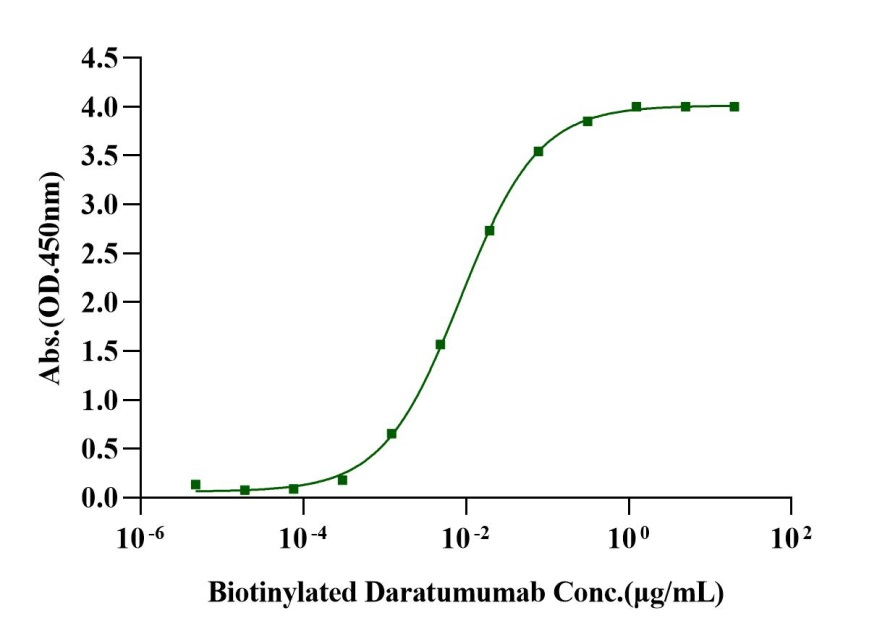
Immobilized CD38 Fc Chimera, Human (Cat. No. UA010182) at 1.0μg/mL (100μL/well) can bind Biotinylated Daratumumab with EC50 of 7.83-9.33ng/ mL.
